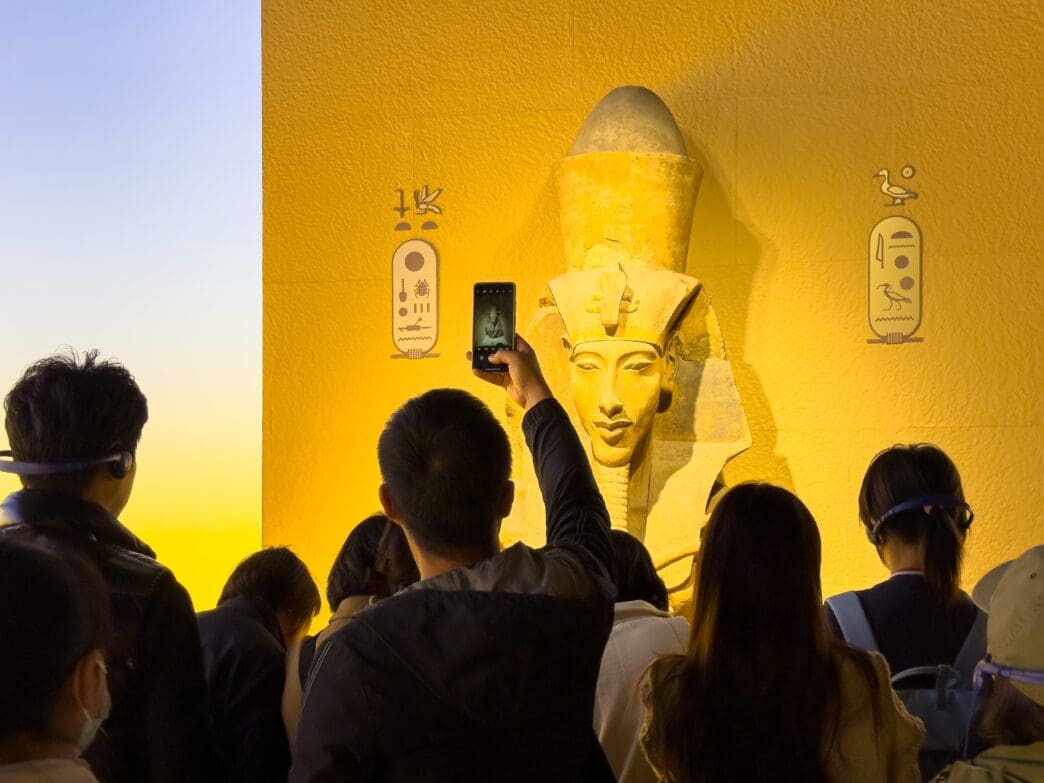Executive Summary
- A major exhibition of ancient Egyptian artifacts in Shanghai has sparked public skepticism in China regarding Western classical history, particularly the dating of these treasures.
- Retired art history professor Huang Heqing publicly questioned the age of items from the exhibition via Douyin, reflecting a growing trend among Chinese intellectuals to scrutinize Western-centric historical narratives.
- This emerging skepticism could impact future cultural and academic collaborations, adding an unexpected element to China’s relationship with partners like Egypt, a key player in the Belt and Road Initiative.
The Story So Far
- The public questioning of ancient Egyptian artifact dating by a Chinese scholar reflects a growing trend among Chinese intellectuals and the general public to scrutinize Western-centric historical narratives. This skepticism emerges during a period of strong bilateral ties between China and Egypt, as Egypt is a significant partner in China’s Belt and Road Initiative, and the exhibition itself was a major cultural collaboration.
Why This Matters
- The public questioning of ancient Egyptian artifact dating by a Chinese scholar, despite a major collaborative exhibition, highlights a growing intellectual trend in China to scrutinize Western-centric historical narratives. This skepticism could introduce unexpected friction into the long-term partnership between China and Egypt, particularly given Egypt’s role in the Belt and Road Initiative, and may have broader implications for China’s future cultural and academic collaborations with international partners.
Who Thinks What?
- Retired art history professor Huang Heqing and a growing number of Chinese intellectuals question the established dating of ancient Egyptian artifacts, reflecting broader skepticism towards Western-centric historical narratives.
- The Shanghai Museum, in collaboration with the Egyptian government, presented ancient Egyptian artifacts with their established datings, highlighting Egypt’s historical significance and its role in China’s Belt and Road Initiative through cultural exchange.
Chinese skepticism regarding Western classical history has recently focused on ancient Egyptian artifacts, following a major exhibition in Shanghai. A retired art history professor publicly questioned the dating of these treasures, introducing an unexpected element into the long-term partnership between China and Egypt.
Exhibition and Bilateral Ties
The Shanghai Museum, in its first collaboration with the Egyptian government, hosted the largest exhibition of Egyptian artifacts outside Egypt in two decades, running from July 2024 to August 2025. This cultural exchange highlighted Egypt’s significant role as a partner in China’s global Belt and Road Initiative.
Questions Raised by Chinese Scholar
In July 2025, Huang Heqing, a retired art history professor from Zhejiang University with a doctorate from the Sorbonne, posted a series of videos on Douyin, the Chinese version of TikTok. In these videos, Huang specifically questioned the age of items like grass sandals, asking if they were truly 3,500 to 2,000 years old as presented.
Professor Huang’s public challenge reflects a growing trend among Chinese intellectuals and the general public to scrutinize Western-centric versions of world history. This rising skepticism adds an intriguing dimension to the relationship between the two nations, particularly given their economic and political ties.
Evolving Historical Narratives
The incident underscores an emerging intellectual current in China that seeks to critically examine established historical narratives, particularly those originating from the West. This development could have implications for future cultural and academic collaborations between China and its international partners.








